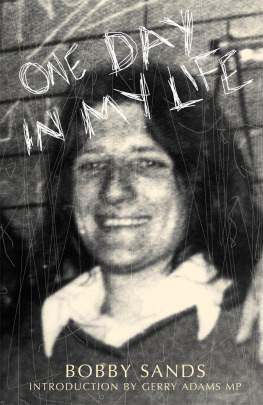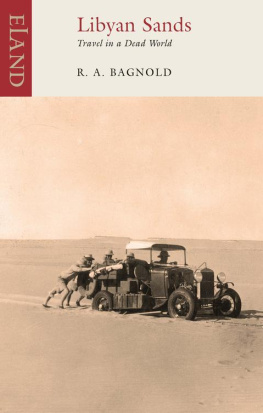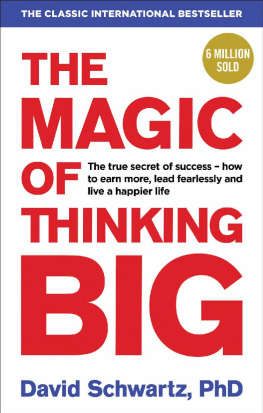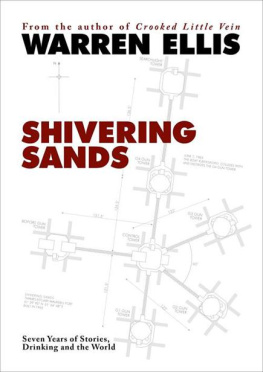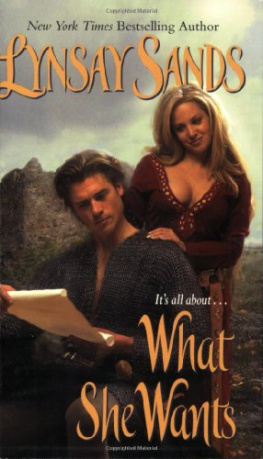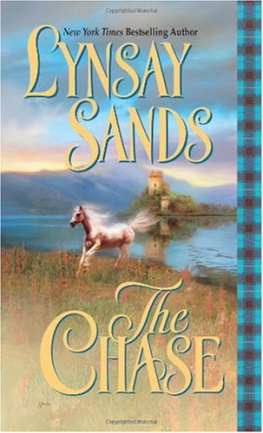David G. Schwartz - At the Sands
Here you can read online David G. Schwartz - At the Sands full text of the book (entire story) in english for free. Download pdf and epub, get meaning, cover and reviews about this ebook. year: 2020, publisher: Winchester Books, genre: Detective and thriller. Description of the work, (preface) as well as reviews are available. Best literature library LitArk.com created for fans of good reading and offers a wide selection of genres:
Romance novel
Science fiction
Adventure
Detective
Science
History
Home and family
Prose
Art
Politics
Computer
Non-fiction
Religion
Business
Children
Humor
Choose a favorite category and find really read worthwhile books. Enjoy immersion in the world of imagination, feel the emotions of the characters or learn something new for yourself, make an fascinating discovery.
- Book:At the Sands
- Author:
- Publisher:Winchester Books
- Genre:
- Year:2020
- Rating:4 / 5
- Favourites:Add to favourites
- Your mark:
- 80
- 1
- 2
- 3
- 4
- 5
At the Sands: summary, description and annotation
We offer to read an annotation, description, summary or preface (depends on what the author of the book "At the Sands" wrote himself). If you haven't found the necessary information about the book — write in the comments, we will try to find it.
At the Sands — read online for free the complete book (whole text) full work
Below is the text of the book, divided by pages. System saving the place of the last page read, allows you to conveniently read the book "At the Sands" online for free, without having to search again every time where you left off. Put a bookmark, and you can go to the page where you finished reading at any time.
Font size:
Interval:
Bookmark:
At the Sands: The Casino That Shaped Classic Las Vegas, Brought the Rat Pack Together, and Went Out With a Bang
David G. Schwartz
Published by Winchester Books, 2020.
While every precaution has been taken in the preparation of this book, the publisher assumes no responsibility for errors or omissions, or for damages resulting from the use of the information contained herein.
AT THE SANDS: THE CASINO THAT SHAPED CLASSIC LAS VEGAS, BROUGHT THE RAT PACK TOGETHER, AND WENT OUT WITH A BANG
First edition. August 20, 2020.
Copyright 2020 David G. Schwartz.
ISBN: 978-0990001652
Written by David G. Schwartz.
10 9 8 7 6 5 4 3 2 1
In memory of
Sheldon Smith and Alan Reed
Their love for Las Vegas and history continues to inspire.
 |  |


T he gambler was in the air, coming back to Las Vegas.
The newspapers called him a publisher and caf owner. The gossip columnists called him only by his name, which in Hollywood was enough. But his friendsand his enemiesknew him for what he really was. A gambler.
Billy Wilkerson couldnt remember a time when he wasnt gambling. His dad, Big Dick Wilkerson, was a legendary gambler in his native Tennessee. In 1902, the elder Wilkerson won the rights to bottle Coca-Cola across the South in a poker game. He flipped that concession for a movie theater, which he sold for $4,000, which he promptly lost in another poker game. Big Dick, unsurprisingly, died penniless. Wilkerson had to drop out of medical school, thwarting his dreams of becoming a doctor, which had replaced his earlier dream of becoming a priest.
Wilkerson the younger was already, by this time, a confirmed, if not degenerate, gambler. Betting on ball games, card games, horsesit was Wilkersons greatest pleasure and only real escape. Gambling also gave him a very real lifeline after his father died. A friend from medical school won a New Jersey movie theater, thanks to a World Series bet, and asked Wilkerson to manage it in exchange for half of the profits.
That break, in 1916, led to a series of jobs in and around New Yorks film industry (and a stint running a speakeasy) before, in 1929, Wilkerson bought a share of a Manhattan-based film trade paper. Hoping to hit a big score to finance a daily version of the paper in California, Wilkerson chose to play the marketson October 29, 1929. Cleaned out completely, he did not give up on his dream. After relocating to California, he published the first edition of the Hollywood Daily Reporter less than a year later.
This was the life of a gambler: from the top to the bottom and back again, all on the flip of a card or a horses gallop.
Hollywood, when you thought about it, was a big poker table: A nice bankroll might get you in the game, some skill could keep you there, but it almost always came down to luck. What Hollywood soldfame, wealth, powercould only be purchased with the currency of luck. That was just as true for a studio boss as it was for an aspiring starlet. Or a publisher.
As he looked out the window of his chartered airplanehe could still travel in style, even with five alimoniesWilkerson thought about luck. Lately, most of it had been bad. Four hundred dollars a month, Vivian had stuck him for. Bad luck, but at least Bautzer spared him a trial with that settlement.
Then there was good luck. Like that January morning when hed walked down to the Top Hat Caf for a Coke. (He loved his Cokes. Sometimes twenty a day.) Then she walked inthe most sensual, innocent girl hed ever seen, and hed seen plenty. She was one of a bunch of kids from Hollywood High School across the street, cutting class and, like Wilkerson, drinking Cokes.
Whos that? he asked the manager.
Her names Judy, Mr. Wilkerson.
Can you make an introduction?
The manager went over and, after some hesitation, walked Wilkerson down the counter.
How would you like to be in pictures? the 46-year-old publisher asked the teenager.
I dont know, Judy said coyly. Ill have to ask my mother. Wilkerson gave her his card.
A few days later, mother and daughter walked into the Hollywood Reporter office, just down the block from the Top Hat. An introduction to talent agent Zeppo Marx, a word to director Mervyn LeRoy, who signed the 16-year-old to a contract, and Judy, now Lana Turner, was on her way to stardom. Not that she forgot Wilkerson or vice versa; he was the best man at her third wedding eleven years after that fateful afternoon at the Top Hat.
Some said it was a real-life Cinderella story, but Wilkerson knew it was just luck. Maybe Judy decides to stay in class that day. Maybe hes more interested in his racing form and doesnt look up at just that moment.
Luck.
Wilkerson had enough of it to make him a man to be reckoned with, which gave him entre into private poker games, like the one at MGM production head Irving Thalbergs Santa Monica mansion, in which players could win or lose tens of thousands of dollars. It also gave him a view into what made Hollywood tick. Something, he was convinced, was missing from the town: real glamor.
And, if he was honest, Wilkerson didnt want to just be the ink-stained publisher cataloging Hollywoods deeds and silencing, for his friends, its misdeeds. He wanted to be the one throwing the party, making the connections. And what better way to do that than by opening a restaurant?
He started with Vendome, a lunch joint, but really hit his stride with the Caf Trocadero, a slice of Parisian style that opened on the Sunset Strip in 1934. Thanks to publicity from the Reporter , the Troc became the place to be seen in Hollywood. Tuxedoed and evening-gowned film stars danced and gossiped, while the general public came, in hopes of seeing a slice of the cinema and maybe, just maybe, being discovered. If it could happen at a soda fountain, why not at the Troc? Sunday night Amateur Hour launched more than a few stars, including Phil Silvers, Jackie Gleason, and Judy Garland.
Luck.
Wilkerson chased luck in the Saturday night poker game in the Trocaderos back room. Only the biggest names were invited, and they played for only the highest stakes. Sometimes luck was with him, sometimes it wasnt. Wilkerson sold the Trocadero in 1937 after having remodeled it three times in as many years, but extracted from the new owner the concession that he and his family would be able to dine at the Trocadero for free in perpetuity.
Next was Ciros, another nightclub, and the LaRue, a restaurant that, within weeks of its 1944 opening, became a Tinseltown institution and nationally famous. Time magazine ran a story on the restaurant in which its owner noted that LaRue, which had cost $44,000 to open, had earned more than $100,000 over its first ten weeks.
The money Wilkerson earned that wasnt spent on alimony (though he only had four ex-wives by this point) fueled his gambling addiction. By the fall of 1944, he was out nearly a million dollars for the year. His good friend, Twentieth Century Fox production head Joseph Schenk, sat him down for a man-to-man talk.
If you cant stop, he advised, get on the other side of the table. Build a casino.
Font size:
Interval:
Bookmark:
Similar books «At the Sands»
Look at similar books to At the Sands. We have selected literature similar in name and meaning in the hope of providing readers with more options to find new, interesting, not yet read works.
Discussion, reviews of the book At the Sands and just readers' own opinions. Leave your comments, write what you think about the work, its meaning or the main characters. Specify what exactly you liked and what you didn't like, and why you think so.





